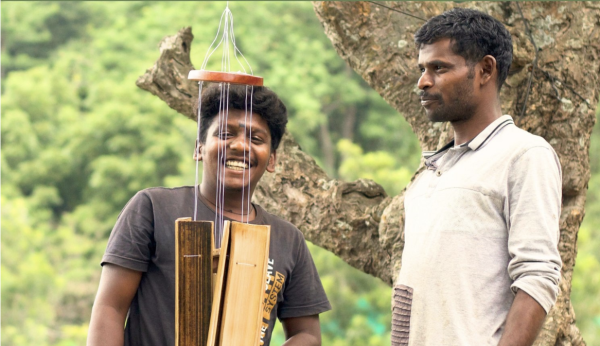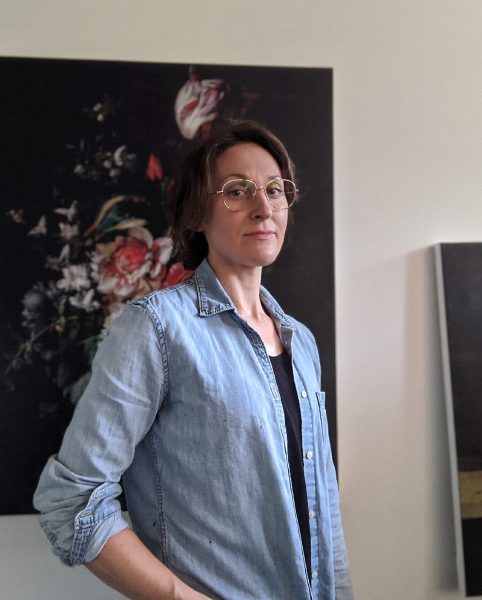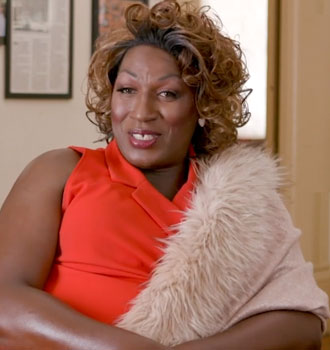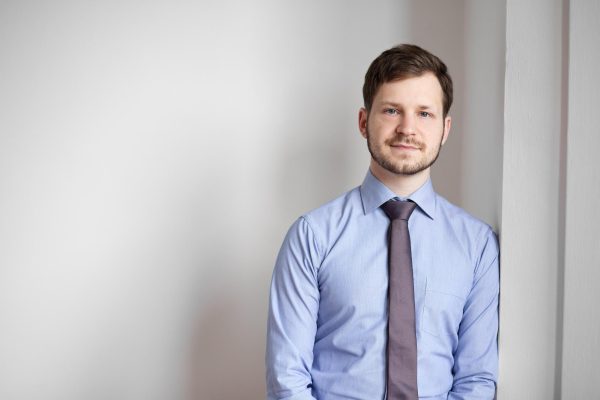On the Record with Fabian Almazan
Photo courtesy of Fabian Almazan
Grammy-nominated jazz pianist Fabian Almazan played a show Thursday night at the Cat in the Cream with his band, Rhizome.
Grammy-nominated jazz pianist Fabian Almazan performed at the Cat in the Cream Thursday night with his band Rhizome, featuring Camila Meza on voice and guitar, Linda May Han Oh on bass, and Henry Cole on drums. Almazan, originally from Cuba and currently based in New York City, earned his bachelor’s and master’s degrees from the Manhattan School of Music, and was voted “#1 Rising Piano Star” by the Downbeat Magazine critics’ poll in 2014. Almazan has also composed several film scores for directors including Spike Lee and George Lucas. He frequently collaborates with acclaimed jazz trumpeter Terence Blanchard.
This interview has been edited for length and clarity.
As a musician, what drew you to jazz?
I started off in classical music but, when I was in high school, some of my peers were jazz musicians. I remember specifically walking in after school one day and seeing them improvising and [that] really really appealed to me because as much as I like classical music, I could just tell that the music they were creating was them directly. Being able to express their own experiences, that completely drew me towards it.
Other than that, my dad was a bassist and he listened to a lot of jazz, so I was aware of it. But it really hit me when I saw other people doing it and how free they seemed.
Artists often work with very little recognition — how does the recognition that come with a Grammy nomination impact you?
It’s nice, and I’m very thankful for it, but awards are stupid. I think all artists do it because they’re helpful to society. … I’m very grateful for the opportunity, but you don’t need an award [to create] art.
Studying or becoming a professional musician can often be a luxury or for people who can afford it. What do you say to people from social or cultural backgrounds who can’t necessarily afford the level of training, equipment, and practice required to pursue music as a career?
Honestly, I feel like I am one of those people. I was born in Cuba. [My family and I] entered the U.S. through the Mexican border and we claimed political asylum. We had no money. I had no piano. I feel very fortunate in that I have very caring parents. I think generational trauma is a very real thing that a lot of children from our generation experience, and it’s very difficult to break that pattern. But, as I said, I feel very grateful that my parents are caring people and they always instilled in me a sense that a lack of money doesn’t mean a lack of curiosity or intelligence. All human beings define themselves. They’re not defined by other people.
I was lucky; in Miami … there was a teacher who gave [me] lessons for free for three years. … Although I didn’t believe in myself, she believed in me. Her name was Conchita Betancourt, and I wouldn’t be where I am now if it weren’t for her. We got a really cheap piano. My parents both worked three jobs; we lived in a trailer home, and little by little we kept working. There was a public arts high school in Miami called New World School of the Arts where I auditioned and got in, and I just kept trying to improve as a musician and pianist. I auditioned for the Brubeck Institute in California. I still didn’t have a piano of my own. It was about seven years ago that I was finally able to buy an upright piano. I’m not saying that what I did is possible for everybody. I think a crucial element is to have good-hearted people around like Conchita, my parents, people that try to help each other. But for children who come from families that have experienced generational trauma, … it’s very difficult to get out that cycle.
I will say this — there are always public libraries that people can go to [and] educate themselves about things. It’s not easy by any means, but the harder you work at it, the higher the possibilities and probabilities are.
How do you go about tackling a job like composing a film score?
Preparation involves just listening to as many different types of music as possible. Different folkloric music helps a lot, orchestral music, marching music, all of it. Essentially, in a film, what you’re doing is trying to convey every end of the spectrum of human emotion, so you should really try to check out as many musical traditions as possible. Then you have to let go of your ego because you’re not writing music as an artist, but … you’re trying to help the story. If you write music that you think is perfect and great, but the director says it’s completely wrong, most likely it is completely wrong. You’re a musician, so you have a certain clout in talking about why you think it works, but if it doesn’t you just have to let it go.
In the tours you’ve done across several continents, what encounters have you had with local music in the places you’ve been to, and what has stayed with you about it?
I feel like when most people travel, what they want to do is get to know the locals and partake in what ‘tourists’ wouldn’t. I feel the same way. A place that I’ve been to that had a huge impact on me is Brazil. We went to one of the favelas on Wednesday night at one o’clock in the morning, and I saw 12-year-old children with rifles [riding] motorcycles. They were rehearsing for the carnival, and the way that it works there is the mafia, or whatever they call it, works outside of the government. They run their own town. The [mafia] bosses’ samba schools were rehearsing, and their people were all playing some musical instrument, and I’ve never heard a viola sound like that. Everybody’s dancing, everybody knows the songs, and you can just tell it’s been going for decades. That was a beautiful experience. I’ve seen things similar to that in Istanbul and Japan. I’m Cuban, you see it in Cuba on every corner. I saw it with tango in Argentina. If you’ve ever been to a tango ballroom where there’s 100 couples dancing, it’s intimidating because they’re all dead serious about romance. By the same token, western classical music in Europe, when you go to somewhere like Vienna, [is] still very much alive. In Italy, opera is revered. You might not think of it as a folkloric music, but it was very much a part of their everyday lives.
Tell me a bit about Rhizome. What’s it like to perform with this group in particular? How did you all come to work together and what’s the story behind the name?
The band originated around 2008, and I wanted to have a sonority that was reflective of me. Just because I was a jazz musician, I didn’t feel like my identity was the typical structure of what you usually have; a trumpet, saxophone, rhythm section, guitar, sometimes trombone, things like that. I just felt like I wanted a sound that had more to do with what … my personality was. So I experimented. I had a band before Rhizome that had a tuba, bassoon, oboe, clarinet, and flute. I was definitely experimenting, and I recorded an album with a trio. But then afterwards I felt like it was missing something, and I started asking around for string players because I had also listened to a lot of Stravinsky and Ravel and Brahms. Eventually I met these string players in New York who I just clicked with and I started writing music.
The name Rhizome comes from a Carl Jung book that I read. … He discussed the idea of the rhizome — [you can have] a forest that seems like a bunch of different trees but they’re actually all from the same rhizome, which is a kind of a root system that keeps … everything connected. The rhizome is the part of the plant that’s able to keep it alive if there’s an extreme winter or something. That rhizome remains alive even though it seems like the trees are dead. [They] come back. From a rhizome comes a bunch of different plants that … are genetically identical. While this band was coming to be, a lot of horrible things were happening in the world, and I wish that I could say that has changed but it hasn’t, so the idea of it is to bring the world [together]. We’re all from the same rhizome of humans; we’re all big extended members of the animal kingdom.
How would you say the music you play reflects you and your experiences?
I hope the music answers that question. I think that’s the beauty of the music — that everybody can interpret it however they do and it’s all valid. Music is such an abstract form. It does reflect it. However that’s interpreted by people, I welcome it.
Your debut album Personalities — how did you come to call it that?
I was young. I think I was 21 or something when I was working on it. I’d only been living in New York a couple years at that point, and there are a lot of personalities that you come across. Just trying to find my way and take the good in people and avoid the bad. My world was becoming bigger and there were a lot of personalities.
You often seem to work in collaboration with others. What draws you to these sorts of collaborations?
I think they’re very unique musicians, and I think jazz in itself is a collaborative art form. I mean film-making definitely is. But when you’re playing with people — and don’t get me wrong, it definitely happens in classical music — but in jazz, it’s really a democratic process. Everybody’s got their own unique voice that they choose to bring in and out. Let’s say we’re playing in a trio — if it feels like the music is becoming stagnant or it’s getting out of control, simultaneously all three members are followers and leaders at the same time. It’s the people who have the courage to step up and potentially be ‘disrespectful’ towards the other musicians by disagreeing musically but having a valid statement to make. … I respect that, and I admire that. It’s going to sound like an extreme analogy, but it’s like being in a battle. Your soldiers are with you and you’ve got each others’ backs. It’s the same in music. You make sound from silence and you want to make sure that you have each others’ backs, and you’re serving the music. People that I’ve worked with … have a great balance of vulnerability and courage, which I think is essential to any honest [piece].
What do you wish you had known as a musician at the very beginning of your career? What do you wish that all musicians could know at the early stages of their career?
To embrace fear. That’s the main [thing]. Everybody knows about stage fright and speaking [in public] and just embracing the fear of putting yourself in a vulnerable position. I mean, don’t be stupid. Don’t just do it for the sake of doing it. Obviously prepare, but I would say to musicians that [at the] point where you feel like ‘oh crap’ — that’s a good moment. [It] should be an indicator that when you’re feeling that ‘oh crap’ moment you’re doing something right.
Is there anything else you’d like to add?
I have a record label called Biophilia Records. Biophilia means an innate attraction to other living things and about environmentally friendly approaches to the music industry. Our artists volunteer periodically with nonprofits to clean up rivers, and we perform for students who can’t afford to listen to music and we don’t have any plastic in our products. We have this thing called a Biopholio. That’s another part of me that I like to put out there, not because of me but because I want the conversation of environmental awareness and sustainability to be out there in the music industry.
What got you involved with doing that sort of work?
My whole life I’ve cared about nature, and it kind of changed a little bit when I got to New York, where I was doing research on it. I went to the Museum of Natural History and spoke to someone called Michael J. Foster, whose focus on environmental justice was more on urban areas where typically … historically underrepresented groups … are left with no choice but to live in certain areas where it’s basically toxic. That opened me up to environmental justice not just [for] these beautiful polar bears, but [for] children living in situations where they can’t breathe clean air. I think I [have] just innately [cared] about those things since I was a kid, and as I got older I felt like music was a very important part of my life. But apart from that, I also cared about the environment and the future of this planet. It took about 10 years of thinking about these things to finally realize how I could bring both worlds together, the result is this label.











